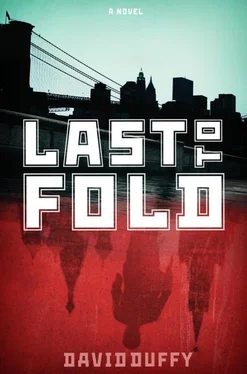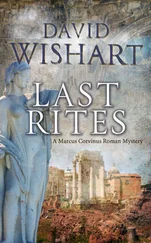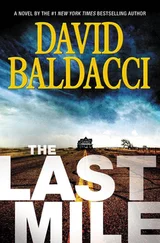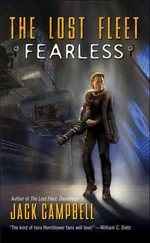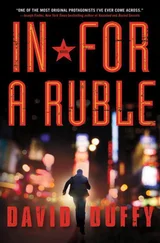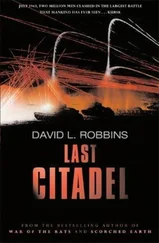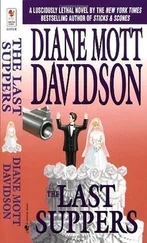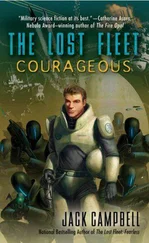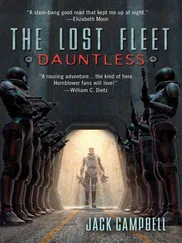I was early, so I crossed the street to get a better look at 998 Fifth Avenue from the plaza in front of the Metropolitan Museum. Twelve stories of Italian Renaissance–style limestone evoked wealth and solidity—a lot of wealth and solidity. The building’s exterior was newly cleaned, and the stone shone bright white. Panels of green and gold marble, set into the walls at the eighth and twelfth floors, sparkled. One of the first apartment buildings that was designed to coax New York’s wealthy out of their town houses into a uniquely American residential experiment—communal living for millionaires. The facade reminded me, as the stolid prewar co-ops on Fifth and Park often do, of the massive Stalinist apartment blocks that line several of Moscow’s main boulevards. They have the same solidity, the same anonymity, the same imposing mass, the same we’ll-be-here-long-after-you’re-gone attitude. Not that astonishing, given that many were built around the same time. The Moscow buildings, however, were constructed for a completely different kind of communal living, every room jammed with multiple families. No workingmen (other than servants) ever lived at 998 Fifth, and the men who did were unlikely to appreciate the comparison.
I knew from the real estate columns that apartments in buildings like this rarely came on the market, and when they did, the prices ran into tens of millions. A broker I’d dated once told me, with more than a little breathless reverence, you needed three times the purchase price in liquid assets—stocks, bonds, cash—before the co-op boards that ruled these residential fiefs would even think of letting you in the door. The ratio was even higher in “the best” buildings. That relationship didn’t last, probably because she figured out I wasn’t Avenue material. The man I was going to see, Rory P. Mulholland, had no problem making the cut—or hadn’t when he bought the apartment. Today, if the Wall Street Journal and the New York Post were to be believed, he was feeling the pinch.
I pictured Mulholland as an American Kosokov—plump, arrogant, imperious. The little research I’d done supported that impression. A second-generation Irish immigrant, he’d also made his fortune as a banker, turning a sleepy New England credit union into America’s sixth-largest lender, mainly by catering to people with credit ratings others wouldn’t touch. FirstTrustBank was the country’s most aggressive marketer of credit cards and a major player in the subprime mortgage market. Mulholland preyed on the poor, charging a healthy premium for providing them access to credit the rest of us take for granted. He was the kind of man Marx blamed for the world’s problems. Lenin would have had him arrested, Stalin—shot. Now maybe the markets were going to mete out their own brand of punishment. It was becoming more and more clear that Mulholland had borrowed long and lent short, which even an ex-socialist knows is a form of Russian roulette. Wall Street sharks, sensing one of their own wounded in the water, were circling. FTB’s stock had almost halved since Wednesday.
I didn’t expect to like Mulholland much, I’d already told Bernie that, and I was ninety percent sure I didn’t want to work for him. I also had business in Moscow I was eager to attend to, a big breakthrough in a decade-long project. Bernie asked me to meet with him at least, and Bernie and I go way back, to the days when he was on one side and I was on the other. He’s also my best source of business. One reason being he has much higher tolerance for self-important men like Mulholland than I do.
I took a deep breath and started to cross the street. I stopped, choking on wet air caught in my throat. Three identical SUVs, windows tinted black, paraded down Fifth Avenue and halted, double-parked at the corner. Police vehicles of some kind. I waited, but no one got out. Probably part of a motorcade, getting ready to form. Plenty of diplomats and dignitaries in this part of town. I continued across and approached the entrance of the building under a heavy iron awning. The door opened before I got there. The limestone lobby was cool and dark, a welcome change from the sidewalk. A uniformed doorman looked me up and down without giving any indication of the impression formed. I said I was there to see Mr. Mulholland. The doorman looked over to another uniformed man behind a desk, who lifted a receiver.
“Who shall I say is here?”
I told him. He punched a button, waited, said, “Mr. Turbo,” into the receiver, hung up, and nodded toward the elevator in the back. Yet another man in uniform drove silently to the ninth floor. Expensive place to live at Christmas.
The elevator man pulled back the gate. I stepped out of the walnut cab into a small vestibule. A pair of mahogany double doors opened before I could knock. A man in a dark suit, white shirt, and silver tie gestured that I should enter.
“Wait here, please.”
He left me in an entrance hall that would not have been out of place in an English manor house. No windows, a half-dozen doors, and a large curved staircase in one corner ascending to the heavens. Plenty of pictures, all Old Masters, some better than others, biblical themes. I was trying to divine the message an arrow-riddled St. Sebastian conveyed to arriving guests when the man in the silver tie returned.
“This way, please.”
He led me to a door at the far end of the hall, knocked once, and stood aside. I went in.
The room was dark and cool, like the lobby. No light from the windows, only lamps. Geography said we were on the side of the building overlooking Central Park, where most people would want to show off the view, but the curtains were drawn. Too bad—sunlight was a short-lived visitor where I come from and never to be shut out entirely, even in a heat wave. Another manor house room, double height, paneled, bookshelves all around, with what looked to be a family crest plastered onto the vaulted ceiling. An outsized marble fireplace took up one end, counterbalanced by an enormous partners’ desk at the other. The desktop was clean except for two computer flat-screens. Over the fireplace was a large Virgin Mary holding the Christ Child. Early Italian Renaissance, unless I missed my guess. Mary was lovely, but I’ve never gotten used to the adult features Renaissance painters give the baby Jesus. A carved balustrade circumnavigated the bookshelves at the second level. The books were leather bound, and some looked as though they’d actually been read, but not, I was willing to wager, by their current owner.
Two men rose from chairs by the fireplace. Bernie Kordlite came across an acre of Oriental carpet, hand outstretched, smiling. He was medium height, five-ten, two inches shorter than I am. In his sixties, he was losing the baldness battle and showing some paunch. He had a round face, wide mouth, and small nose, on which was perched a pair of circular horn-rimmed glasses. He was dressed in a three-button sack suit and striped tie. Bernie is perpetually dressed in a three-button sack suit and striped tie. I’ve always wanted to ask Barbara, his wife, if that’s what he sleeps in.
“Hello, Turbo,” Bernie said, grabbing my hand. “Thanks for coming uptown. Let me introduce Rory Mulholland. Rory, this is Turbo Vlost.”
Mulholland stood by his chair, waiting for me to come to him. I thought about standing my ground, too, forcing him to take the first step, but I’d come here because Bernie asked me to, and it was pointless to pick a fight, especially a petty one, as soon as I walked through the door. I was tempted though.
“How do you do, Mr. Vlost,” Mulholland said.
I took his hand. Fleshy, his grip neither firm nor limp.
“Call me Turbo.”
He didn’t say, Call me Rory . He sat and gave me the once-over, not intently, but as if he were vaguely curious how someone like me came to be in his library. His face was as expressionless as the doorman’s downstairs.
Читать дальше
